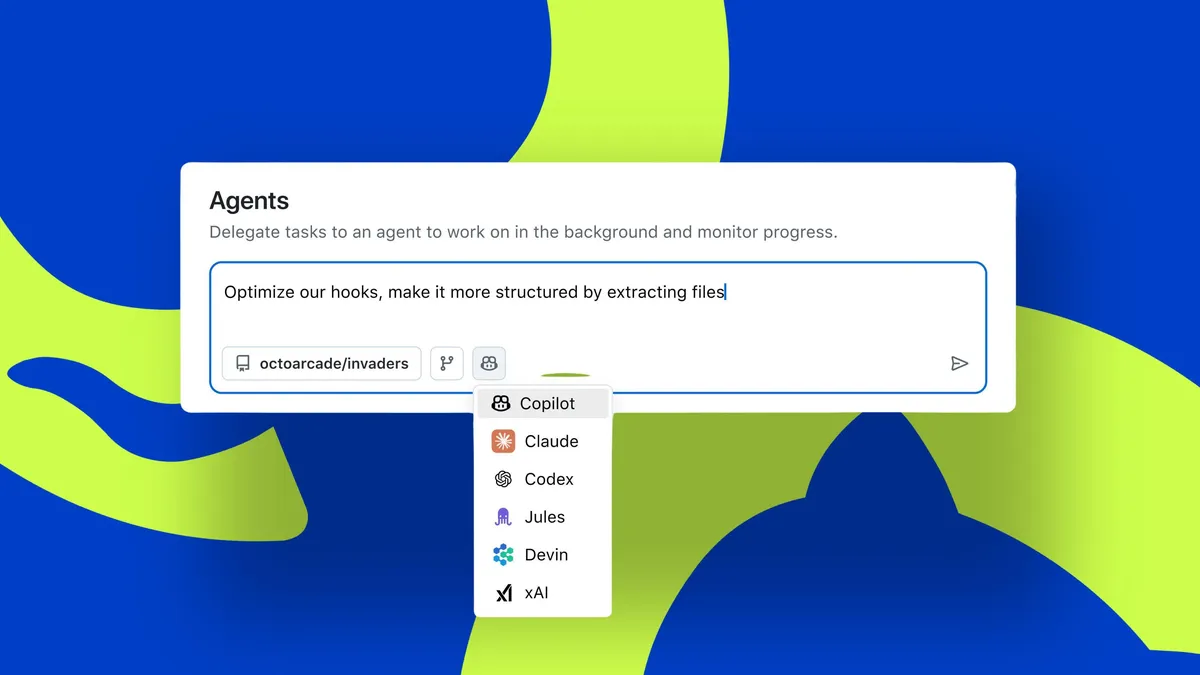Copyright zdnet

Follow ZDNET: Add us as a preferred source on Google. ZDNET's key takeaways GitHub launches Agent HQ to unite Codex, Claude, and Jules.Developers can now manage multiple AI agents side by side.Mission Control gives coders one command center for all AI tools. Today, at GitHub's GitHub Universe event in San Francisco, GitHub and OpenAI announced the integration of OpenAI's Codex into GitHub. Also: I got 4 years of product development done in 4 days for $200, and I'm still stunned But wait, you may ask (as I did), "Isn't Codex already integrated into GitHub?" I mean, I used it and wrote about it months ago. See, that was then and this is now. Months ago, in AI terms, is like decades to the rest of the world. GitHub is making some monster announcements, and Codex fits into those. It's the fit that's new, not the idea that Codex is available for GitHubbers. GitHub is announcing what they're calling their "next evolution," an agentic development platform. At the same time, OpenAI is announcing that Codex will be available directly from the paid GitHub Copilot Pro+ subscription. Alexander Embiricos, Codex product lead at OpenAI, says, "Our collaboration with GitHub has always pushed the frontier of how developers build software. The first Codex model helped power Copilot and inspired a new generation of AI-assisted coding." (Disclosure: Ziff Davis, ZDNET's parent company, filed an April 2025 lawsuit against OpenAI, alleging it infringed Ziff Davis copyrights in training and operating its AI systems.) According to an email conversation with the GitHub folks, I was told, "This is a move only GitHub can realize because it's the only place that combines the community, the code context, and the complete workflow needed to make any AI agent a truly impactful teammate." The core approach is what GitHub calls an "Agent HQ," where coders and AI agents work together. Given that many (maybe even most) developers build their projects using GitHub's source control and scaffolding, this is a fairly logical, if ambitious, extension. Also: 10 ChatGPT Codex secrets I only learned after 60 hours of pair programming with it One thought I had while writing this piece is that GitHub serves two key purposes for the software development world: a giant repository of open-source code (and some private code as well) and what is probably the single largest collaboration community in history (and that is not hyperbole). During my big four years of coding in four days project sprint, I talked about how coding with Codex did feel collaborative. Yes, granted, it was like collaborating with a brilliant, if stubbornly obtuse, colleague, but that's what collaborating with many developers is like anyway. So, if you think of AI agents as members of the programming team, then it makes sense that they be tightly integrated into the GitHub environment. But to make this work, GitHub and the various coding agent models can't be walled gardens. Also: The best AI for coding in 2025 (including a new winner - and what not to use) Mike Krieger, chief product officer at Anthropic, addresses this concern. He says, "We're partnering with GitHub to bring Claude even closer to how teams build software. With Agent HQ, Claude can pick up issues, create branches, commit code, and respond to pull requests, working alongside your team like any other collaborator." Coding agent inclusivity GitHub is announcing that they wish to welcome (their term) "every coding agent to integrate directly into GitHub." They're starting with OpenAI's Codex and Anthropic's Claude. I'm told that more coding agents will be integrated into GitHub in the coming months. Don't let this little bit of news float past you like all those self-satisfied marketing pitches we semi-hear and ignore. If it works and remains reliable, this is actually a very big deal. OpenAI's product lead Embiricos expanded on this: "We share GitHub's vision of meeting developers wherever they work, and we're excited to bring Codex to millions more developers who use GitHub and VS Code, extending the power of Codex everywhere code gets written." Also: The best free AI courses and certificates in 2025 - and I've tried them all Tech companies, especially the giant ones, often like to talk "open" but then do their level best to engineer lock-in to their solution and their solution alone. Sure, most of them offer some sort of export tool, but the barrier to moving from one tool to another is often huge. According to Kathy Korevec, director of product at Google Labs, "Developer tools should accelerate your workflow, not slow it down. With Agent HQ, Jules becomes a native assignee, streamlining manual steps and reducing friction in everyday development." She says, "This deeper integration with GitHub brings the Jules agent closer to where developers already work, helping them move faster and stay focused on building." The AI companies are engineering their own lock-in in fairly subtle ways. The most effective may well be the AI "memories" that chatbots are starting to build up about you and your conversations. The idea is that you can go back and the chatbots know who you are, what you're working on, your style, your interests, etc. On one hand, that's helpful. On the other hand, that's terrifying at an almost primal level. Also: What Bill Gates really said about AI replacing coding jobs But for productivity, the growing memories each AI has of you can save a lot of time. When I did my coding sprint, Codex did not maintain context across sessions, but you could engineer some context retention through the AGENTS.md file that many AI agents support. Over time, coding agents will build up their memories of you the same way your favorite chatbots do. So, the idea that you can continue to use your favorite agent or agents in GitHub, fully integrated into the GitHub tool path, is powerful. It means there's a chance developers might not have to suffer the walled garden effect that so many companies have strived for to lock in their customers. Mission control GitHub is introducing Mission Control, which is a "unified command center" for your agentic coding work. It's designed to be available in whatever coding space you're currently working in, whether that's GitHub, VS Code, or your favorite terminal program. This is all well and good (actually quite good), but I do have a bone to pick with GitHub product management. Mission Control? Really? Roughly a third of all developers use Macs, and Mission Control is a standard Mac feature. Did they not know this? Could they not have come up with a different name? Also: I put GitHub Copilot's AI to the test - its mixed success at coding baffled me Anyway, let's move on. Most AI coding agents now allow you to assign them a batch of asynchronous work projects that they're able to run with and report back when done. GitHub's new Mission Control can do that, too, except now you can do so across agents and agentic AI language models. So if you happen to like Claude Code for certain kinds of work, and Codex for other work, you can assign work from the same interface to both tools, track what's being done, and work with it. GitHub is adding new branch controls for better oversight of agent-created code and better management of AI-generated continuous integration (CI) tasks. They're also adding identity features that help clarify which agent is doing what, help manage access, and help control policies. Basically, they're giving you the same tools you'd use to manage human developers, but for AI agents. Also: How to use GPT-5 in VS Code with GitHub Copilot There are a lot more technical details in this unified announcement, but the core of it all is that GitHub is engineering coding agent-agnostic AI deep into the core GitHub experience. I think Anthropic's Krieger sums it all up nicely. He says, "This is how we think the future of development works: agents and developers building together, on the infrastructure you already trust." What do you think about GitHub's move to integrate AI agents like Codex and Claude directly into the core development workflow? Do you see agent collaboration as a genuine productivity boost or more of a novelty? How do you feel about the idea of an "Agent HQ" managing multiple AI teammates across tools? Is it exciting, a little unsettling, or both? And do you think GitHub's approach to keeping the platform agent-agnostic can really prevent the kind of lock-in we've seen from other tech ecosystems? Let us know in the comments below. Want more stories about AI? Check out AI Leaderboard, our weekly newsletter. You can follow my day-to-day project updates on social media. Be sure to subscribe to my weekly update newsletter, and follow me on Twitter/X at @DavidGewirtz, on Facebook at Facebook.com/DavidGewirtz, on Instagram at Instagram.com/DavidGewirtz, on Bluesky at @DavidGewirtz.com, and on YouTube at YouTube.com/DavidGewirtzTV.



